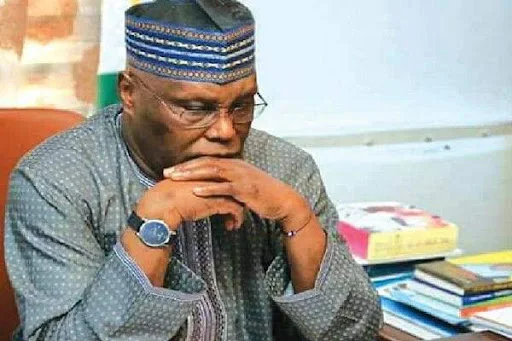In a startling revelation, former President Olusegun Obasanjo has accused his former Vice President, Atiku Abubakar, of introducing the culture of bribery into Nigeria's Senate. In his memoir "My Watch," Obasanjo details how Atiku allegedly orchestrated the installation of Chuba Okadigbo as Senate President by bribing senators, marking the beginning of what he describes as a troubling chapter in Nigeria's legislative history.
According to Obasanjo, Atiku began plotting behind his back shortly after their administration took office in 1999. Without seeking his approval, Atiku started lobbying for Chuba Okadigbo to become Senate President, a move that raised red flags for Obasanjo. "I did a background check on Chuba, including his past as a student, and made inquiries about him in the National Party of Nigeria (NPN) under President Shehu Shagari. No one would recommend him for the post of Senate president," Obasanjo recalled. Concerned about Okadigbo's reputation and unsuitability for the role, Obasanjo decided to find a more acceptable candidate.
Obasanjo embarked on a meticulous investigation, scrutinizing the backgrounds of all potential candidates from the South-East region. After careful consideration, he identified Evan Enwerem as the most suitable candidate. Enwerem was seen as a stabilizing figure who could lead the Senate with integrity and uphold the democratic principles needed for Nigeria's nascent democracy. Obasanjo personally canvassed support for Enwerem across party lines within the Senate, and his efforts paid off when Enwerem was elected as Senate President.
However, Atiku was reportedly displeased with this outcome. Undeterred, he continued to work behind the scenes to unseat Enwerem and install Okadigbo. "Atiku did not expect it and he felt sore," Obasanjo noted in his memoir. The former president further explained how Atiku devised a strategy to impeach Enwerem. This plan culminated in the successful ousting of Enwerem when the Senate voted to impeach him and replace him with Okadigbo.
Obasanjo was informed of the impeachment while at Abuja airport, where he was waiting to receive a visiting head of state. Despite the unexpected news, Obasanjo claimed he was not surprised. He later learned from several senators, including Florence Ita-Giwa, who subsequently became his Special Adviser and Liaison Officer to the National Assembly, that Atiku had distributed $5,000 each to some senators to ensure Enwerem's removal. "That was the beginning of bribing the legislature to carry out a particular line of action to suit or satisfy the purpose or desire of an individual or a group," Obasanjo asserted.
The former president argued that this event set a dangerous precedent in Nigerian politics, where legislative actions could be swayed by financial inducements. "The National Assembly had tasted blood and they would continue to want more," Obasanjo lamented, suggesting that the culture of bribery and corruption in the legislature began with this act orchestrated by Atiku.
Obasanjo's accusations against Atiku go beyond the immediate political maneuvering. He contends that Atiku's actions were part of a broader, more insidious plan to undermine his presidency. "From the day I nominated Atiku to be my vice, he set his mind not for any good, benefit, or service of the country, but on furiously planning to upstage, supplant, or remove me at all costs and take my place," Obasanjo wrote. This statement reflects the depth of mistrust and animosity that characterized their relationship during their time in office.
Obasanjo's narrative paints a picture of a political partnership that was fraught with tension, betrayal, and underhanded tactics. The former president's account suggests that Atiku's ambition to ascend to the presidency drove him to engage in actions that were not only unethical but also detrimental to Nigeria's democracy. Obasanjo's depiction of Atiku as a power-hungry politician willing to go to any lengths to achieve his goals adds a new dimension to the public's understanding of the inner workings of Nigeria's political elite.
These allegations, if substantiated, reveal a disturbing insight into the nature of Nigerian politics and the lengths to which some individuals will go to achieve their personal ambitions. Obasanjo's revelations serve as a stark reminder of the challenges Nigeria faces in its quest to build a transparent, accountable, and democratic governance system. The former president's candid account raises serious questions about the integrity of those who have held and continue to hold public office in Nigeria, and it challenges the nation's political leaders to reflect on the moral and ethical standards they must uphold to lead effectively.
Obasanjo's memoir, "My Watch," provides a rare, firsthand glimpse into the power struggles, corruption, and political intrigue that have shaped Nigeria's political landscape over the years. It offers a cautionary tale of how personal ambition and political maneuvering can undermine national interests and democratic principles, leaving a legacy that continues to haunt the country's governance structures.
**Source:** "My Watch" by Olusegun Obasanjo.
Tags
News

